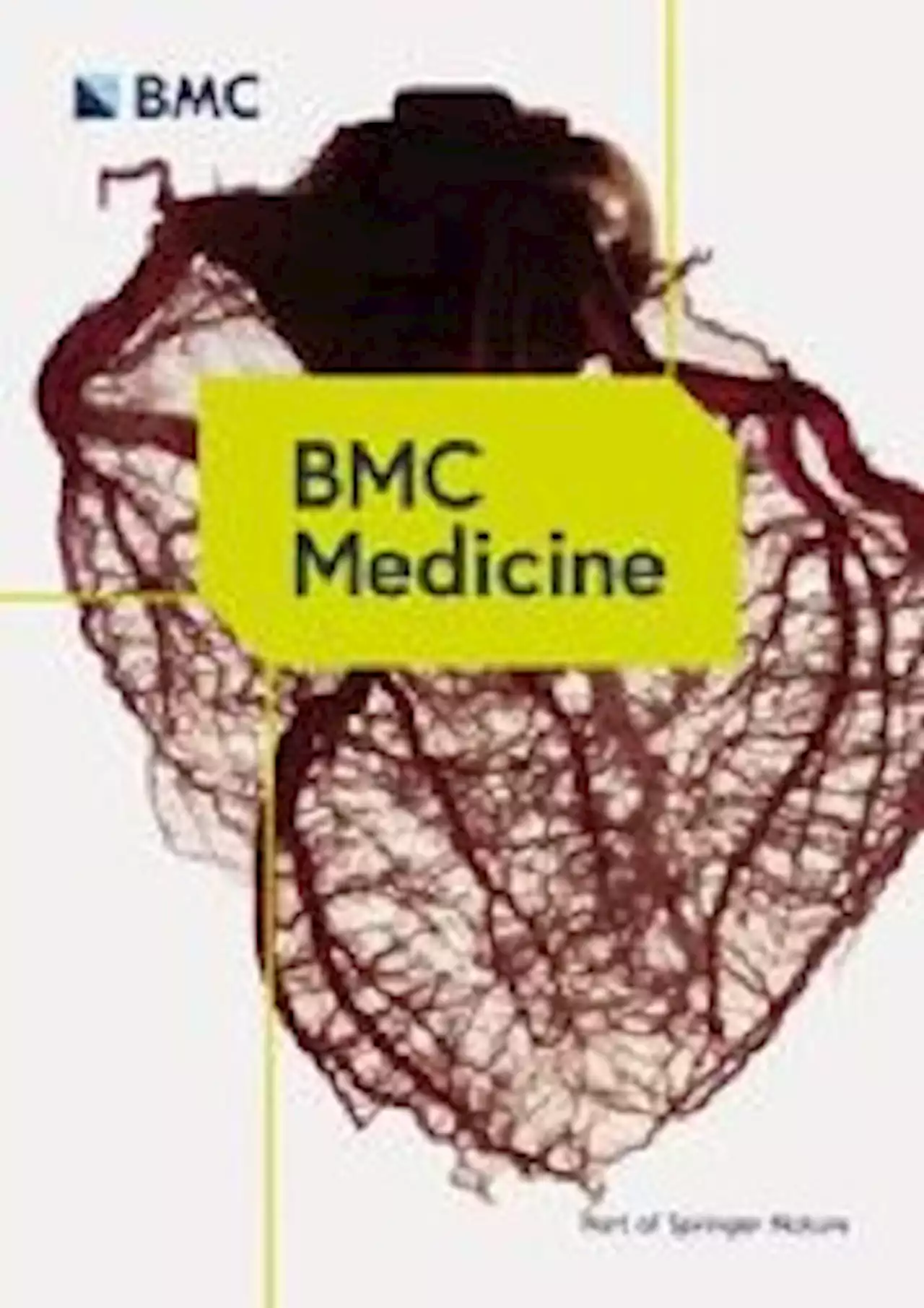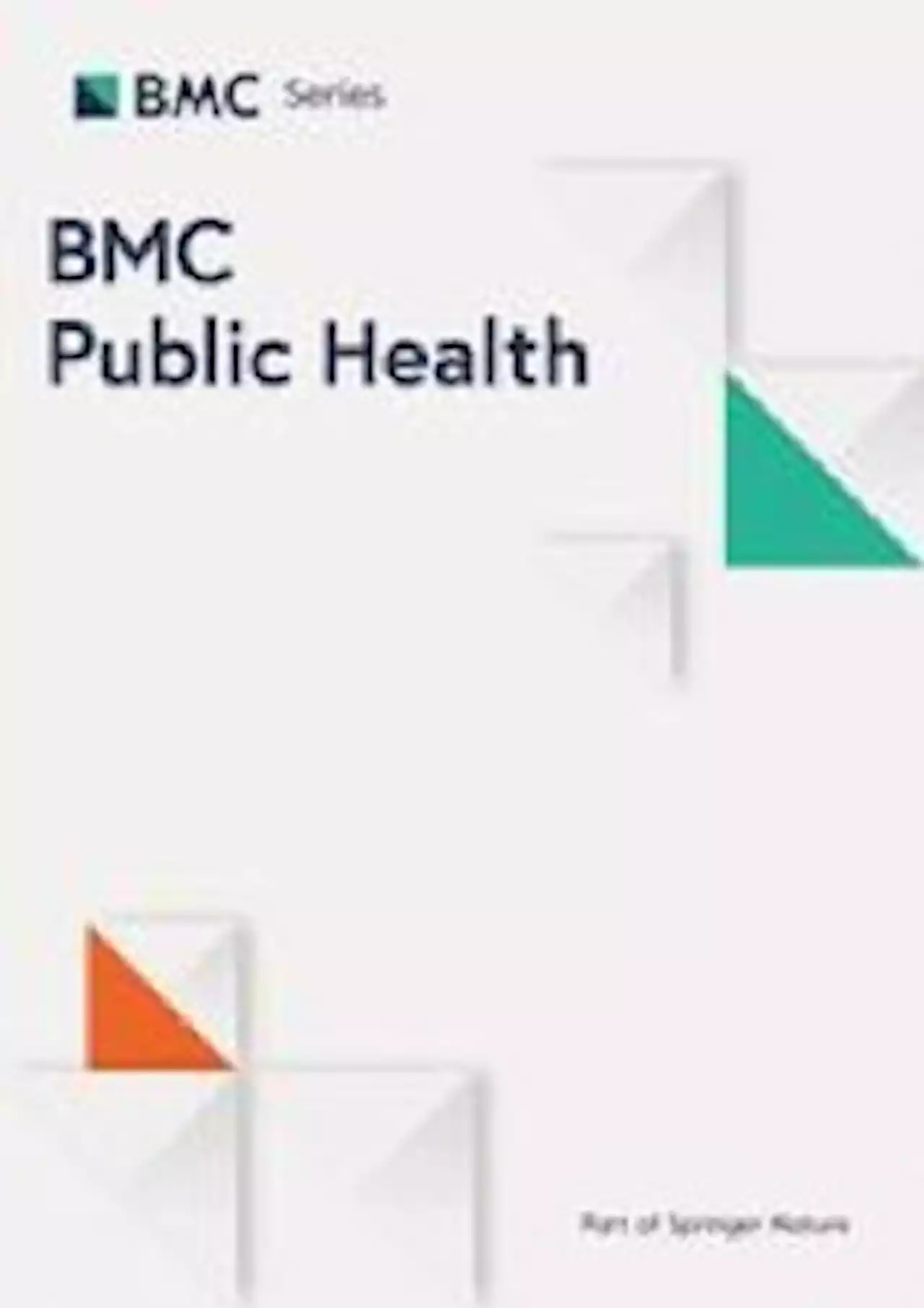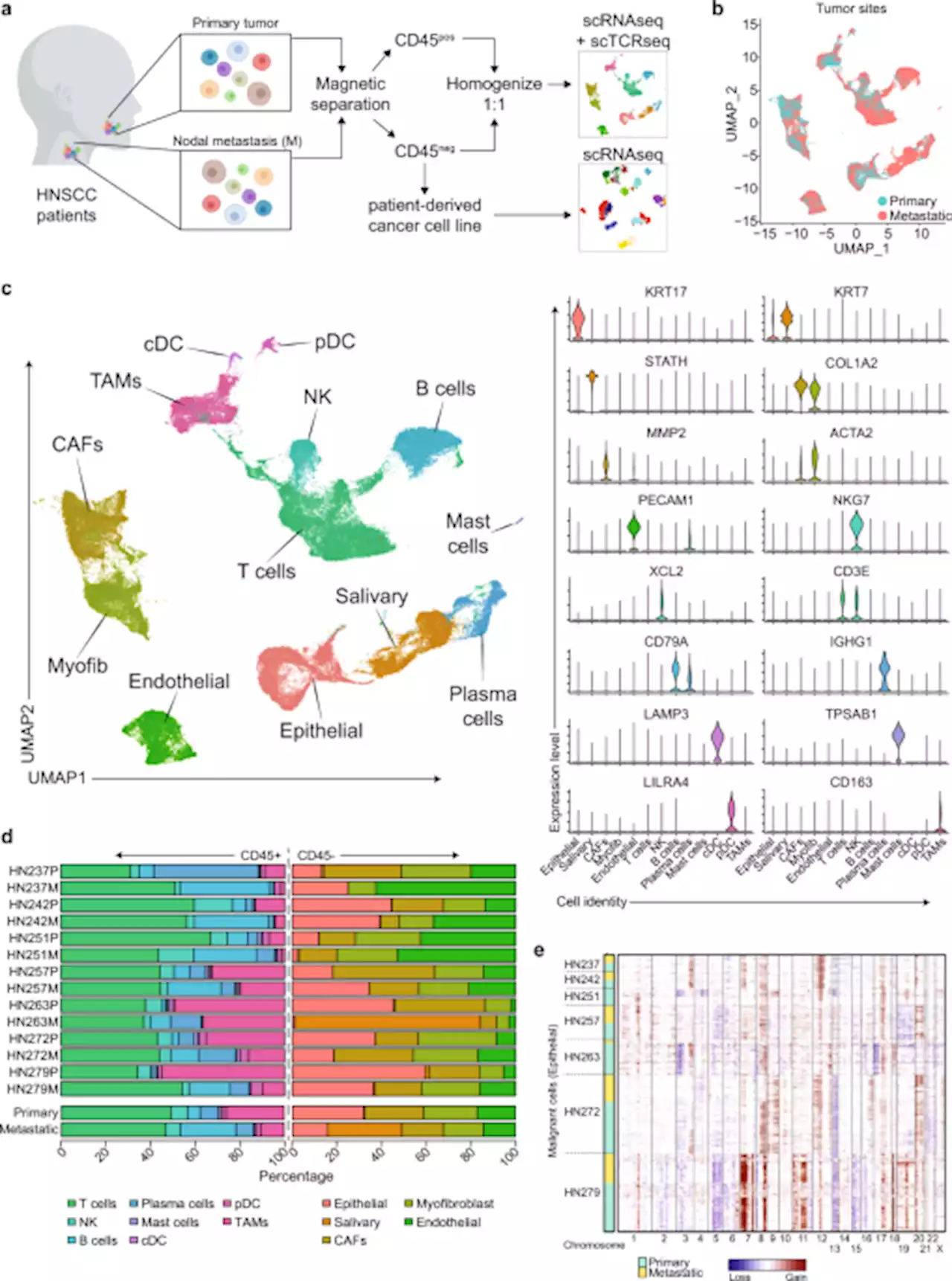An article published in BMCBioInformatics presents transXpress: a streamlined and universal de novo transcriptome assembly and annotation pipeline to facilitate rapid discovery of new genes and proteins in non-model organisms.
We thank Brian Hass for his support with numerous issues and questions related to the Trinity assembler. The transXpress logo was designed by the Whitehead Institute Bioinformatics & Research Computing group.T.R.F. is supported by the National Institute of Environmental Health Sciences, Kirschstein-NRSA postdoctoral fellowship .
This work is supported by the Family Larsson-Rosenquist Foundation , the National Science Foundation , Chan Zuckerberg Foundation , Gordon and Betty Moore Foundation , the Czech Science Foundation—GA CR , and the European Union’s Horizon 2020 research and innovation programme . The content is solely the responsibility of the authors and does not necessarily represent the official views of the funding providers.
United Kingdom Latest News, United Kingdom Headlines
Similar News:You can also read news stories similar to this one that we have collected from other news sources.
 Post-COVID-19 condition and persisting symptoms in English schoolchildren: repeated surveys to March 2022 - BMC Infectious DiseasesBackground Both post-COVID-19 condition (long COVID) and the presence of persisting symptoms that do not meet formal definitions of post-COVID-19-condition may adversely affect quality of life and function. However, their prevalence among children and young people in England is unclear. Methods We used data from repeated surveys in a large cohort of English schoolchildren from the COVID-19 Schools Infection Survey (SIS) for the school year 2021/22 to describe the weighted prevalence of post-COVID-19-condition and compare persisting symptoms between individuals with a positive SARS-CoV-2 test and those with neither a positive test history nor suspected infection. Results Among 7797 children from 173 schools, 1.8% of primary school pupils (aged 4 to 11 years), 4.5% of secondary school pupils in years 7–11 (aged 11 to 16 years) and 6.9% of those in years 12–13 (aged 16 to 18 years) met a definition of post-COVID-19 condition in March 2022. Specific persisting symptoms such as anxiety or difficulty concentrating were frequently reported regardless of prior infection status and increased with age: 48.0% of primary school pupils, 52.9% of secondary school pupils in years 7–11 and 79.5% in years 12–13 reporting at least one symptom lasting more than 12 weeks. Persisting loss of smell and taste, cardiovascular and some systemic symptoms were more frequently reported by those with a previous positive test. Conclusions We showed that ongoing symptoms were frequently reported by English schoolchildren regardless of SARS-CoV-2 test results and some specific symptoms such as loss of smell and taste were more prevalent in those with a positive test history. Our study emphasises the wide-ranging impacts of the COVID-19 pandemic on the health and wellbeing of children and young people.
Post-COVID-19 condition and persisting symptoms in English schoolchildren: repeated surveys to March 2022 - BMC Infectious DiseasesBackground Both post-COVID-19 condition (long COVID) and the presence of persisting symptoms that do not meet formal definitions of post-COVID-19-condition may adversely affect quality of life and function. However, their prevalence among children and young people in England is unclear. Methods We used data from repeated surveys in a large cohort of English schoolchildren from the COVID-19 Schools Infection Survey (SIS) for the school year 2021/22 to describe the weighted prevalence of post-COVID-19-condition and compare persisting symptoms between individuals with a positive SARS-CoV-2 test and those with neither a positive test history nor suspected infection. Results Among 7797 children from 173 schools, 1.8% of primary school pupils (aged 4 to 11 years), 4.5% of secondary school pupils in years 7–11 (aged 11 to 16 years) and 6.9% of those in years 12–13 (aged 16 to 18 years) met a definition of post-COVID-19 condition in March 2022. Specific persisting symptoms such as anxiety or difficulty concentrating were frequently reported regardless of prior infection status and increased with age: 48.0% of primary school pupils, 52.9% of secondary school pupils in years 7–11 and 79.5% in years 12–13 reporting at least one symptom lasting more than 12 weeks. Persisting loss of smell and taste, cardiovascular and some systemic symptoms were more frequently reported by those with a previous positive test. Conclusions We showed that ongoing symptoms were frequently reported by English schoolchildren regardless of SARS-CoV-2 test results and some specific symptoms such as loss of smell and taste were more prevalent in those with a positive test history. Our study emphasises the wide-ranging impacts of the COVID-19 pandemic on the health and wellbeing of children and young people.
Read more »
 Identifying the potential causal role of insomnia symptoms on 11,409 health-related outcomes: a phenome-wide Mendelian randomisation analysis in UK Biobank - BMC MedicineBackground Insomnia symptoms are widespread in the population and might have effects on many chronic conditions and their risk factors but previous research has focused on select hypothesised associations/effects rather than taking a systematic hypothesis-free approach across many health outcomes. Methods We performed a Mendelian randomisation (MR) phenome-wide association study (PheWAS) in 336,975 unrelated white-British UK Biobank participants. Self-reported insomnia symptoms were instrumented by a genetic risk score (GRS) created from 129 single-nucleotide polymorphisms (SNPs). A total of 11,409 outcomes from UK Biobank were extracted and processed by an automated pipeline (PHESANT) for the MR-PheWAS. Potential causal effects (those passing a Bonferroni-corrected significance threshold) were followed up with two-sample MR in MR-Base, where possible. Results Four hundred thirty-seven potential causal effects of insomnia symptoms were observed for a diverse range of outcomes, including anxiety, depression, pain, body composition, respiratory, musculoskeletal and cardiovascular traits. We were able to undertake two-sample MR for 71 of these 437 and found evidence of causal effects (with directionally concordant effect estimates across main and sensitivity analyses) for 30 of these. These included novel findings (by which we mean not extensively explored in conventional observational studies and not previously explored using MR based on a systematic search) of an adverse effect on risk of spondylosis (OR [95%CI] = 1.55 [1.33, 1.81]) and bronchitis (OR [95%CI] = 1.12 [1.03, 1.22]), among others. Conclusions Insomnia symptoms potentially cause a wide range of adverse health-related outcomes and behaviours. This has implications for developing interventions to prevent and treat a number of diseases in order to reduce multimorbidity and associated polypharmacy.
Identifying the potential causal role of insomnia symptoms on 11,409 health-related outcomes: a phenome-wide Mendelian randomisation analysis in UK Biobank - BMC MedicineBackground Insomnia symptoms are widespread in the population and might have effects on many chronic conditions and their risk factors but previous research has focused on select hypothesised associations/effects rather than taking a systematic hypothesis-free approach across many health outcomes. Methods We performed a Mendelian randomisation (MR) phenome-wide association study (PheWAS) in 336,975 unrelated white-British UK Biobank participants. Self-reported insomnia symptoms were instrumented by a genetic risk score (GRS) created from 129 single-nucleotide polymorphisms (SNPs). A total of 11,409 outcomes from UK Biobank were extracted and processed by an automated pipeline (PHESANT) for the MR-PheWAS. Potential causal effects (those passing a Bonferroni-corrected significance threshold) were followed up with two-sample MR in MR-Base, where possible. Results Four hundred thirty-seven potential causal effects of insomnia symptoms were observed for a diverse range of outcomes, including anxiety, depression, pain, body composition, respiratory, musculoskeletal and cardiovascular traits. We were able to undertake two-sample MR for 71 of these 437 and found evidence of causal effects (with directionally concordant effect estimates across main and sensitivity analyses) for 30 of these. These included novel findings (by which we mean not extensively explored in conventional observational studies and not previously explored using MR based on a systematic search) of an adverse effect on risk of spondylosis (OR [95%CI] = 1.55 [1.33, 1.81]) and bronchitis (OR [95%CI] = 1.12 [1.03, 1.22]), among others. Conclusions Insomnia symptoms potentially cause a wide range of adverse health-related outcomes and behaviours. This has implications for developing interventions to prevent and treat a number of diseases in order to reduce multimorbidity and associated polypharmacy.
Read more »
 Time outdoors positively associates with academic performance: a school-based study with objective monitoring of outdoor time - BMC Public HealthBackground To explore the relationship between outdoor time and academic performance among school-aged children. Methods This study was designed as a cross-sectional study. Data were derived from a school-based prospective children myopia intervention study (STORM). Outdoor time was recorded by self-developed algorithm-validated wristwatches in real-time and calculated as the cumulative average of 10 months. The academic performance was recorded and provided by the participating schools and further standardized. Other information was collected using an online standardized questionnaire. Mixed-effects model and B-Spline method were used to investigate the association between time spent on different types of daily activity, including outdoor activity and academic performance. Results A total of 3291 children with mean age 9.25 years were included in the final analysis. Overall, outdoor time was associated with academic performance in a non-linear manner; specifically, not exceeding 2.3 h per day, outdoor time was positively associated with academic performance; exceeding 2.3 h per day, this association became non-significant. Likewise, daily sleep duration and out-of-school learning time were associated with academic performance in a non-linear manner, resulting in turning points of 11.3 and 1.4 h per day, respectively. Separate analysis showed that outdoor time and sleep duration but not out-of-school learning time were positively associated with academic performance in Chinese, mathematics and English. Conclusion Outdoor time, sleep duration and out-of-school learning time were associated with academic performance in a non-linear manner. Promotion of outdoor time may not negatively impact on academic performance. Trial registration Our study was registered in ClinicalTrials.gov (Identifier: NCT02980445).
Time outdoors positively associates with academic performance: a school-based study with objective monitoring of outdoor time - BMC Public HealthBackground To explore the relationship between outdoor time and academic performance among school-aged children. Methods This study was designed as a cross-sectional study. Data were derived from a school-based prospective children myopia intervention study (STORM). Outdoor time was recorded by self-developed algorithm-validated wristwatches in real-time and calculated as the cumulative average of 10 months. The academic performance was recorded and provided by the participating schools and further standardized. Other information was collected using an online standardized questionnaire. Mixed-effects model and B-Spline method were used to investigate the association between time spent on different types of daily activity, including outdoor activity and academic performance. Results A total of 3291 children with mean age 9.25 years were included in the final analysis. Overall, outdoor time was associated with academic performance in a non-linear manner; specifically, not exceeding 2.3 h per day, outdoor time was positively associated with academic performance; exceeding 2.3 h per day, this association became non-significant. Likewise, daily sleep duration and out-of-school learning time were associated with academic performance in a non-linear manner, resulting in turning points of 11.3 and 1.4 h per day, respectively. Separate analysis showed that outdoor time and sleep duration but not out-of-school learning time were positively associated with academic performance in Chinese, mathematics and English. Conclusion Outdoor time, sleep duration and out-of-school learning time were associated with academic performance in a non-linear manner. Promotion of outdoor time may not negatively impact on academic performance. Trial registration Our study was registered in ClinicalTrials.gov (Identifier: NCT02980445).
Read more »
 Single cell analysis in head and neck cancer reveals potential immune evasion mechanisms during early metastasis - Nature CommunicationsThe molecular mechanisms underlying lymph-node metastasis in head and neck squamous-cell carcinoma remain to be investigated. Here, the authors perform single-cell RNA sequencing of cancer cells and CD8 + T cells and suggest potential mechanisms of immune evasion during early metastasis.
Single cell analysis in head and neck cancer reveals potential immune evasion mechanisms during early metastasis - Nature CommunicationsThe molecular mechanisms underlying lymph-node metastasis in head and neck squamous-cell carcinoma remain to be investigated. Here, the authors perform single-cell RNA sequencing of cancer cells and CD8 + T cells and suggest potential mechanisms of immune evasion during early metastasis.
Read more »
 Trans paedophile who served in Scottish women's prison praised Nicola Sturgeon's transgender reformsA trans paedophile who preyed on kids in supermarket toilets and served time in a women's prison praised Nicola Sturgeon's gender reforms and said she was a 'great First Minister'
Trans paedophile who served in Scottish women's prison praised Nicola Sturgeon's transgender reformsA trans paedophile who preyed on kids in supermarket toilets and served time in a women's prison praised Nicola Sturgeon's gender reforms and said she was a 'great First Minister'
Read more »
 Backlash after Bud Light uses trans woman Dylan Mulvaney to promote beer as influencer says she's 'thriving'Trans woman Dylan Mulvaney has sparked another backlash after Bud Light used her to sell beer, just days after uproar about her Nike sports bra campaign
Backlash after Bud Light uses trans woman Dylan Mulvaney to promote beer as influencer says she's 'thriving'Trans woman Dylan Mulvaney has sparked another backlash after Bud Light used her to sell beer, just days after uproar about her Nike sports bra campaign
Read more »
